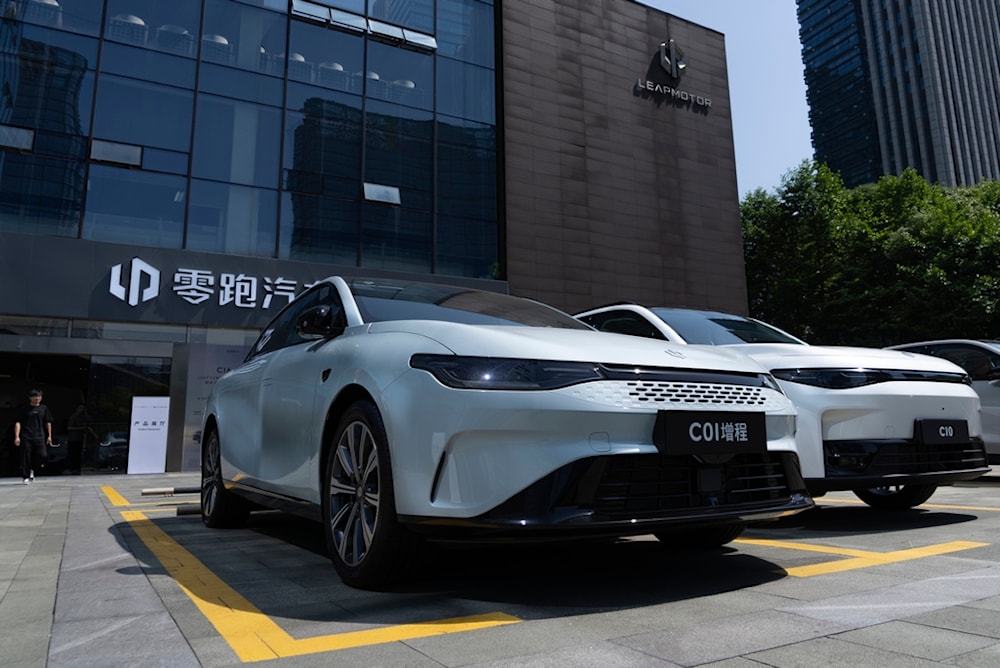EU to impose tariffs on Chinese EVs, German companies fear retaliation
Chinese electric vehicle makers will face tariffs of up to 38% when exporting to EU countries if a vote passes.
-

Leapmotor vehicles are parked outside a showroom in Hangzhou in eastern China's Zhejiang province, on May 14, 2024. (AP)
The European Union (EU) added extra provisional duties of up to 38% on Chinese electric car imports because of supposed "unfair" state subsidies, despite Beijing's warnings that such a move would unleash a trade war.
A European Commission probe launched last year concluded that Chinese state subsidies for electric vehicle (EV) manufacturers were unfairly undercutting European companies.
"Our investigation... concluded that the battery electric vehicles produced in China benefit from unfair subsidization, which is causing a threat of economic injury to the EU's own electric car makers," the EU's trade chief Valdis Dombrovskis said.
The decision comes at a critical time as EU nations look to transition from combustion engine vehicles to electric vehicles.
Read more: Rare earth elements and their applications; why the global competition
China: Unstoppable EV world-leader
China is a world leader in producing green energy-related goods and sourcing raw materials needed for batteries, chips, phones, electric vehicles, and solar panels among other high-tech products. The Chinese industrial capacity has become a main rival of US-based and EU-based EV manufacturers due to the relatively lower prices of Chinese-produced EV cars.
China emerged as the clear global leader in the EV market in 2022, surpassing the combined sales of all other countries. Chinese sales were six times higher than those of second-place US. The country also accounts for 58% of all EV cars sold. The publicly listed Chinese multinational conglomerate BYD accounts for 29.6% of all EV sales in 2022.
The Chinese Chamber of Commerce to the EU slammed the latest tariffs, which on to current import duties of 10%, saying that the move is politically motivated and protectionist.
Yet, Chinese authorities are still hopeful that the issue can be resolved through dialogue.
Read more: China warns of WTO lawsuit amid EU's electric car import restrictions
German companies fear Chinese retaliation
Companies and entities in the EU are split over the decision, as German-based automobile giant Volkswagen slammed the move as "detrimental" and the head of BMW said the tariff battle "leads to a dead end."
German auto-makers fear that Chinese retaliatory tariffs will affect their sales in the Chinese market, which imports the most German-based cars around the world.
On the other hand, France and Italy have pushed for tariffs on Chinese EVs but Sweden, like Germany, has expressed reservations.
The provisional tariffs are set to be imposed as of Friday and definitive duties are set to take effect in November for a period of five years, pending a vote by the EU's 27 member states.
Read more: EU-China talks on E-vehicle imports continue amid Tariff threats

 3 Min Read
3 Min Read








